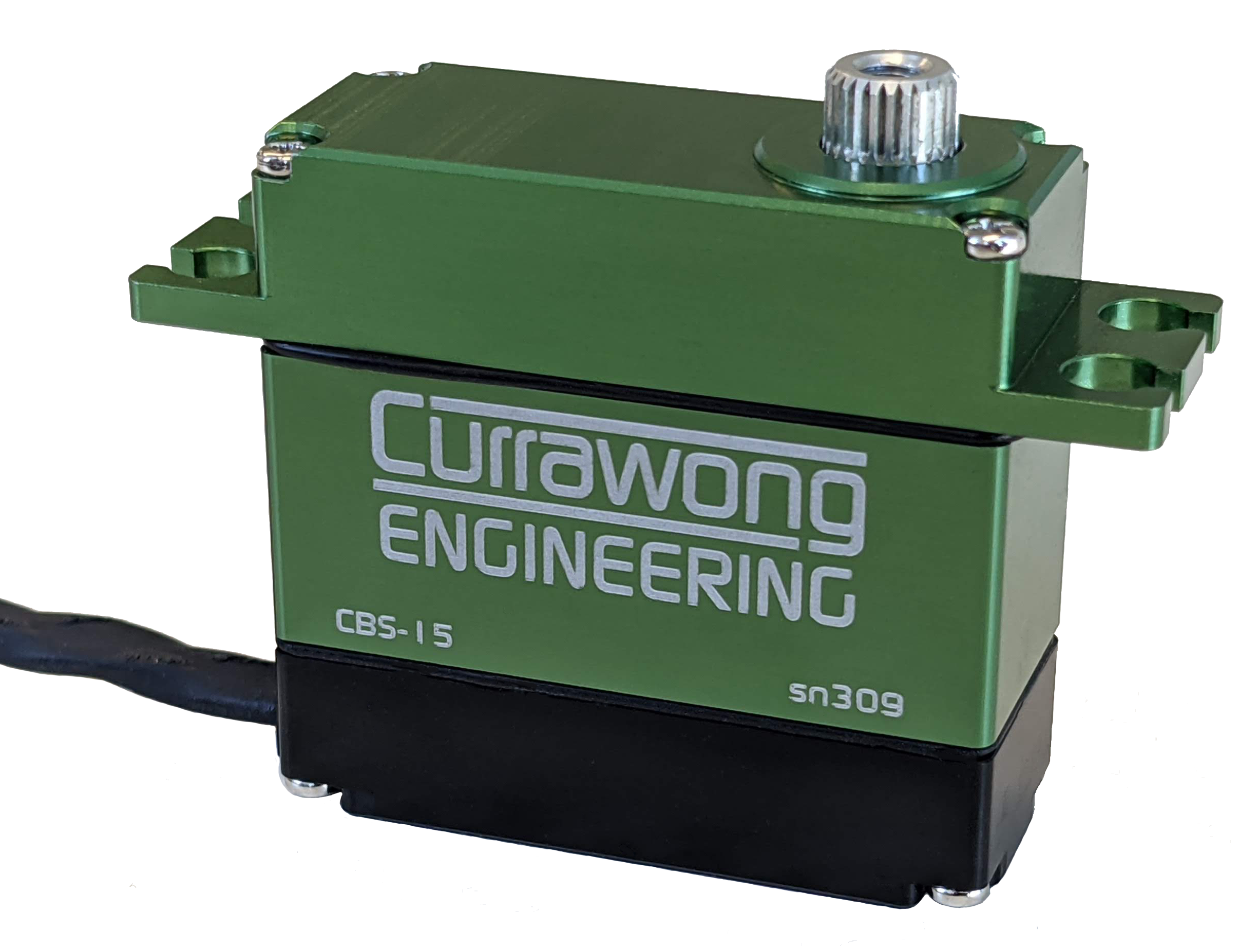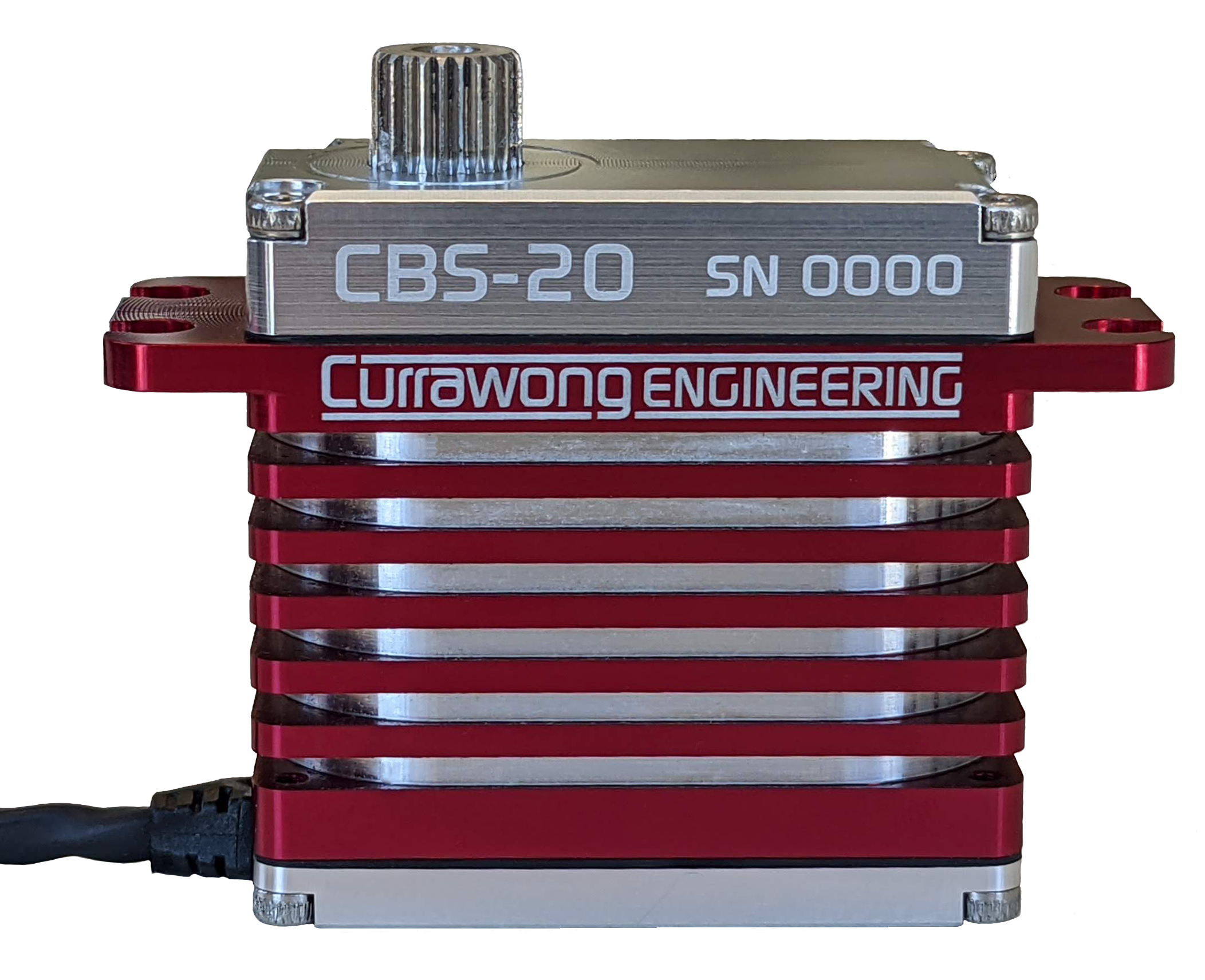Currawong’s CAN servos provide many benefits over traditional servos widely used in many UAV applications. With integrated current, temperature and vibration sensing, the servos provide a level of diagnostic feedback and airframe health monitoring that is not possible using standard servos. Advanced features such as control surface linearisation, torque limiting and actuator redundancy are provided by the internal controller. Leveraging the benefits of the CAN communications architecture (seamless integration with DroneCAN, Piccolo, Ardupilot and Veronte autopilots), these servos do not require individual dedicated autopilot I/O lines, and all avionics devices on the CAN bus have access to servo feedback data.
Specifications CBS-15
Part Number |
CE985B |
Voltage Range |
6 – 12V |
Peak Current |
1.5A |
Dynamic Torque |
6.94kgcm (0.68Nm) @6V 7.65kgcm (0.75Nm) @12V |
Speed |
330 °/s @6V 660 °/s @12V |
Angular Range |
± 90° |
Control Frequency |
1kHz |
Temperature Range |
-20°C to 85°C |
Dimensions |
48 x 39 x 16mm (1.9 x 1.5 x 0.6 inch) |
Servo Spline |
H25T |
Weight |
45g (1.6 oz) |
Specifications CBS-20
Part Number |
CE1520 |
Voltage Range |
6 – 12V |
Peak Current |
5A @ 6V 6.5A @ 8.4V |
Dynamic Torque |
20.39kgcm (2 Nm) @ 6V 27.53 kgcm (2.7Nm) @12V |
Speed |
400 °/s @ 6V 760 °/s @12V |
Angular Range |
± 90° |
Control Frequency |
1kHz |
Temperature Range |
-20°C to 85°C |
Dimensions |
38 x 38 x 20 mm (1.5 x 1.5 x 0.79 inch) |
Servo Spline |
H25T |
Weight |
84g (2.96 oz) |
The key features of the CBS CAN servo include:
-
- High resolution position control that is completely free of jitter due to the error-free CAN communications interface DroneCAN, Piccolo, Ardupilot and Veronte autopilots).
- Real-time feedback of key performance parameters such as servo position, torque, current and temperature.
- Complete closed-loop actuator system featuring a high-frequency current-limiting feedback system, which is fully user configurable. Integrated linearisation curves allow each servo to be configured against individual control surface linkages.
- Each servo features accelerometer-based vibration sensing, which provides a vibration analysis system distributed around the aircraft – this data is available on CAN.
- A variety of user-configurable warning thresholds (current, vibration, position error etc) to provide vital real-time diagnostic information.
- A simple yet powerful command interface so that messages can be sent to individual servos or broadcast to the entire group. Redundant control is achievable as servos can coordinate motion or be used in a variety of master/slave configurations.
- The ability to be controlled, configured and monitored using Currawong’s sophisticated data analysis software package, cEQUIP.
Currawong Engineering
54 Patriarch Drive, Huntingfield, Tasmania 7055
(03) 6229 1973
Email or Follow Us
admin@currawong.aero


